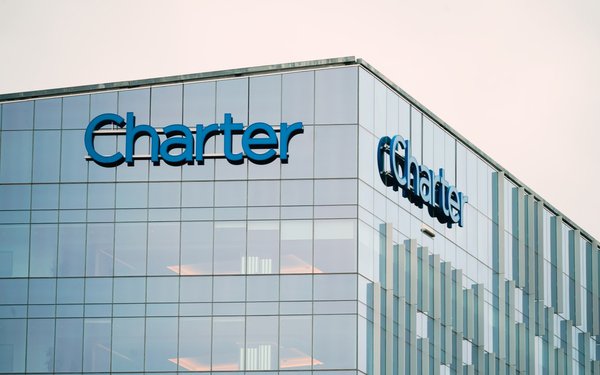
Traditional cable operator-based communications companies may see
some moderating -- or dare we say potential -- growth when it comes to what seems to be a new wave of broadcast/cable TV packages for consumers.
With modern pay TV/streaming consumers looking
for possible deals and/or new “bundles” -- combo streaming/linear TV networks -- cable TV-based companies like Charter Communications would seem to require closer inspection.
Its
recent second-quarter earnings report shows a dramatic decline in
quarterly net losses for its video subscribers -- just 73,000 versus a massive 393,000 in the year-ago period. What’s going on?
Craig Moffett, media analyst and co-founder of
MoffettNathanson Research, mused: “We are beginning to see the early impact of Charter’s bundled streaming packages. The results are eye-opening. Maybe video isn’t dead after
all.”
advertisement
advertisement
This is largely attributable to Charter's ground-breaking September 2023 deal, where Walt Disney agreed to let Charter package Disney+ -- a high-profile streaming platform -- into
its linear TV bundles -- a major first in the business.
Charter expanded this year -- adding Disney’s Hulu to the mix, and now the forthcoming full programming ESPN streaming
platform.
Analysts believed early on -- some eight months into the deal -- that maybe this wasn’t all that it was said to be. One report suggested only an estimated one million out of
9.5 million subscribers of Charter Signature Select pay TV package have accessed Disney+.
Now, it appears there is some gravitational pull going on somewhere. The expectation was that Charter
would lose around 222,000 in the quarter -- not just 73,000. That about a 5% drop versus a nearly 10% drop a year ago.
It could go further -- even industry wide-- if consumers continue to seek
consistently less costly deals for streaming platforms. Increasingly, they will learn that this will come from bundling. And that would be in particular from legacy-based video distribution companies
with a history of cable TV network packages believing they can grab back some new-wave video distribution business from companies such as Roku or Amazon Fire TV.
For example, the
Comcast-Charter joint venture Xumo has the Xumo Play streaming distribution platform, where consumers can buy a la carte streaming platforms.
For sure, Comcast and Charter have many other
issues -- especially the weakening of their more dominant but needed broadband/internet business.
Moving forward, legacy pay TV providers have hopes for higher growth for mobile-phone service,
as well as video network/streaming packages.
And there are more hurdles. Although the current subscriber trends seem like a good trend at Charter, revenues for video distribution of those
networks keep dipping lower -- down 10% to $3.5 billion from a year ago.
Will these video business declines continue? And if so, what specifically is giving subscribers pause in putting down
the scissors for that overused term "cord-cutting?"